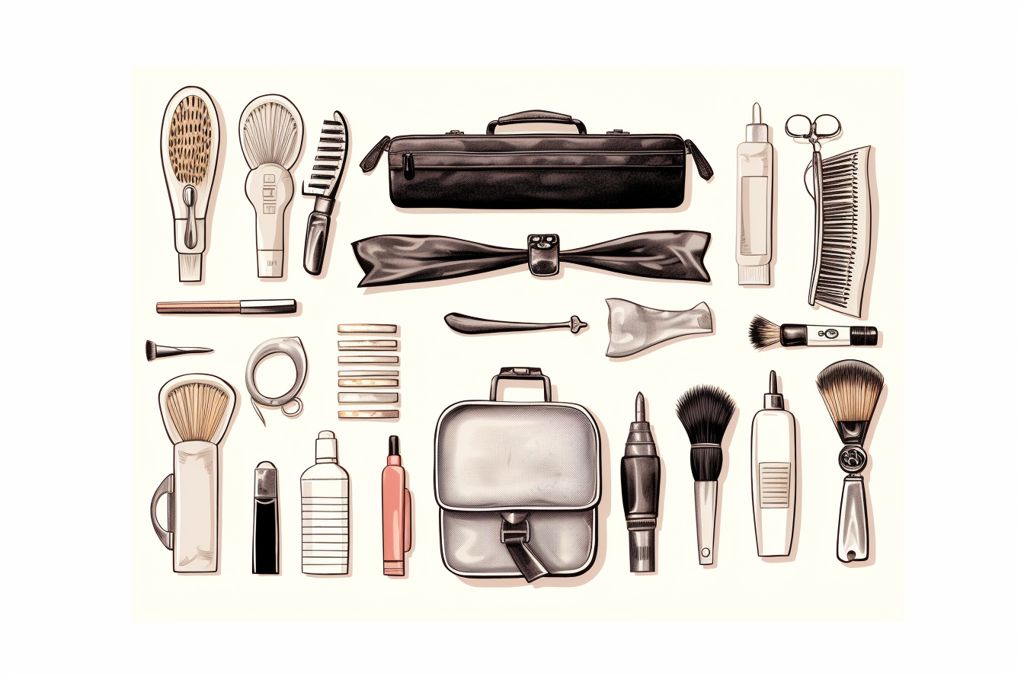South Africa has introduced a fully-funded Hairdressing Occupational Certificate program in Technical and Vocational And Training (TVET) colleges to provide formal training in hairdressing and cosmetology services. The program aims to empower young South Africans to embark on entrepreneurial endeavors in the hair and beauty industry and generate employment and business prospects. Upon completing the program, graduates will receive equipment to establish their own businesses, while TVET colleges will provide entrepreneurship programs. The initiative embodies a commitment to empowering the youth and cultivating entrepreneurial spirit, ultimately contributing to the country’s socio-economic development.
Transforming the Hairdressing Industry
South Africa celebrates a major accomplishment with the introduction of the Hairdressing Occupational Certificate as a fully-funded program in Technical and Vocational And Training (TVET) colleges. Dr. Blade Nzimande, the Minister of Higher Education, Science, and Innovation, has initiated this program to generate numerous job opportunities and enhance the living standards of families, especially for the South African black youth.
The hairdressing sector is a flourishing industry in South Africa, contributing over R24.8 billion to the economy. With around 3,000 Caucasian hair salons and 34,000 Afro salons throughout the country, the industry holds enormous potential for generating employment and business prospects. However, the majority of South African black youth have been unable to take full advantage of this industry due to the absence of formal training in hairdressing and cosmetology services.
In response to this issue, the government has deliberately chosen to formalize skills training in the hairdressing field by providing a Hairdressing Occupational Certificate program at TVET colleges. This initiative seeks to empower young South Africans, including those in rural and township areas, to embark on entrepreneurial endeavors in the hair and beauty industry, which has witnessed consistent growth in recent years.
Expanding Opportunities and Empowering Entrepreneurs
The Hairdressing Occupational Certificate is tailored for young South Africans who desire to obtain a qualification in hairdressing. Eligible students who are admitted to study at any TVET college in South Africa will receive full tuition fee coverage, as well as hairdresser equipment. TVET colleges will also be funded to maintain and update equipment in their training salons, ensuring that they are fully operational and offer practical training in well-equipped workshops.
Upon completing their studies, graduates will be supplied with the necessary equipment to establish their own businesses. TVET colleges will also provide entrepreneurship programs, assisting graduates with licensing, insurance, and the creation of business accounts. Moreover, South Africa will take part in the World Skills competition, highlighting the skills and techniques of TVET college-trained hairdressers on an international stage.
To guarantee the success of this program, TVET colleges must join forces with Sector Education and Training Authorities (SETAs) to broaden lecturer training and curriculum offerings. Furthermore, the Department of Small Business Development, responsible for promoting and developing entrepreneurship, Small, Micro, and Medium Enterprises (SMMEs), and Co-operatives in South Africa, has agreed to collaborate with the TVET colleges in this initiative.
Enhancing Curriculum and Building Industry Partnerships
The program’s curriculum incorporates training in customer service alongside professional skills, with the expectation that it will also integrate basic entrepreneurial abilities. The Quality Council for Trades and Occupations (QCTO) must ensure that the curriculum accommodates all hair types to serve a diverse South African market. Additionally, it is crucial for TVET colleges to collaborate in extending program offerings into beauty therapy, which is currently in high demand but predominantly offered through private entities and colleges.
In the pursuit of establishing stronger industry partnerships, TVET colleges should support salon owners in becoming qualified by guiding them through the Recognition of Prior Learning (ARPL) process. This will generate more approved workplaces for students and build enduring relationships with local salons.
The inauguration of the Hairdressing Occupational Certificate program signifies a remarkable milestone for South Africa’s TVET sector and the nation as a whole. Consequently, South Africans will gain access to a new generation of capable, skilled, and professionally trained hairdressers who can cater to their diverse needs and preferences. This initiative embodies a commitment to empowering the youth and cultivating entrepreneurial spirit, ultimately contributing to the country’s socio-economic development.
1. What is the Hairdressing Occupational Certificate program in South Africa?
The Hairdressing Occupational Certificate program is a fully-funded program offered in Technical and Vocational And Training (TVET) colleges in South Africa, providing formal training in hairdressing and cosmetology services. The program aims to empower young South Africans to embark on entrepreneurial endeavors in the hair and beauty industry and generate employment and business prospects.
2. Who initiated the Hairdressing Occupational Certificate program in South Africa?
Dr. Blade Nzimande, the Minister of Higher Education, Science, and Innovation, initiated the program to generate numerous job opportunities and enhance the living standards of families, especially for the South African black youth.
3. How will the Hairdressing Occupational Certificate program benefit the South African economy?
The hairdressing industry is a flourishing industry in South Africa, contributing over R24.8 billion to the economy. The program holds enormous potential for generating employment and business prospects, especially for the South African black youth who have been unable to take full advantage of this industry due to the absence of formal training in hairdressing and cosmetology services.
4. What will eligible students of the Hairdressing Occupational Certificate program receive?
Eligible students who are admitted to study at any TVET college in South Africa will receive full tuition fee coverage, as well as hairdresser equipment.
5. How will the Hairdressing Occupational Certificate program help graduates establish their own businesses?
Upon completing their studies, graduates will be supplied with the necessary equipment to establish their own businesses. TVET colleges will also provide entrepreneurship programs, assisting graduates with licensing, insurance, and the creation of business accounts.
6. How will TVET colleges be funded to maintain and update equipment in their training salons?
TVET colleges will also be funded to maintain and update equipment in their training salons, ensuring that they are fully operational and offer practical training in well-equipped workshops.
7. What industry partnerships are TVET colleges encouraged to establish?
TVET colleges should support salon owners in becoming qualified by guiding them through the Recognition of Prior Learning (ARPL) process. This will generate more approved workplaces for students and build enduring relationships with local salons.
8. What is the Quality Council for Trades and Occupations (QCTO) responsible for in the Hairdressing Occupational Certificate program?
The Quality Council for Trades and Occupations (QCTO) must ensure that the curriculum accommodates all hair types to serve a diverse South African market.








